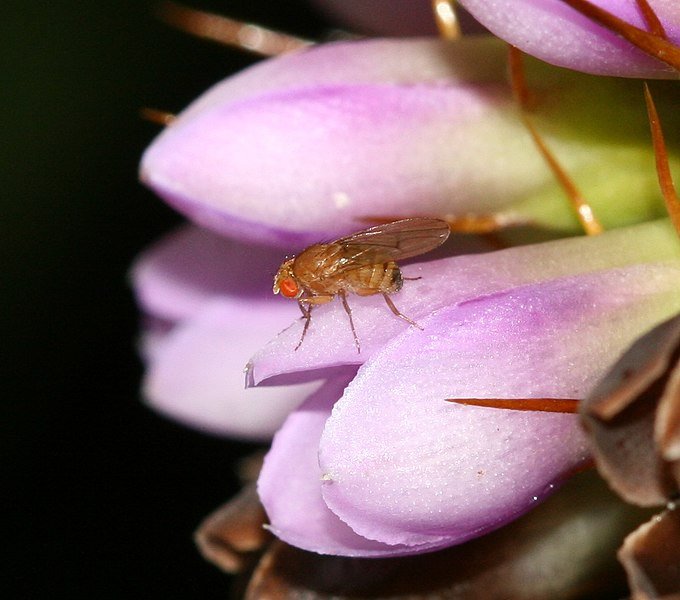Parthenogenesis is asexual reproduction in which genetic contribution from male is dispensed with. Eggs develop to offspring on their own without being fertilised by a sperm. This is seen in nature in some species of plants, insects, reptiles etc. In facultative parthenogenesis the animal switch from sexual to parthenogenetic reproduction under difficult situations. Non-parthenogenetic species reproduce sexually and do not give “virgin births”. In a study reported recently, researchers achieved induction of facultative parthenogenesis and “virgin births” in Drosophila melanogaster (a non-parthenogenetic species) through gjenetik engineering. The research team identified involved genes and demonstrated for the time first time how expressions of involved genes influence induction of facultative parthenogenesis in an animal.
Partenogjeneza është një formë e riprodhimit aseksual që nuk përfshin fekondim of an egg by a sperm. The embryo is formed by the female on her own (without gjenetik contribution from a male) which develops to give “virgin birth”. Parthenogenesis could be either obligate or facultative. In case of facultative parthenogenesis, the animal switch from sexual to parthenogenetic reproduction under difficult situations while obligate parthenogenesis is the situation when reproduction is mainly asexual through parthenogenesis.
"Lindjet e virgjëra" pa fekondim me spermë mund të tingëllojnë e çuditshme, por kjo formë riprodhimi në të cilën mashkulli shpërndahet, shihet natyrshëm në shumë lloje bimësh, insektesh, përgjigjesh etj. Speciet jopatogjenetike nuk japin "lindje të virgjëra" edhe pse ka është induktuar artificialisht në vezët në laborator për të lindur pasardhës të bretkosave dhe minjve. Këto raste të partenogjenezës artificiale tek bretkosat dhe minjtë nuk i bënë bretkosat dhe minjtë femra të aftë për të lindur vetë të virgjër, pasi vetëm vezët e tyre u nxitën që t'i nënshtroheshin embriogjeneza në kushte laboratorike. Kjo ka ndryshuar tani me raportin (publikuar më 28th July 2023) of non-parthenogenetic animals giving “virgin births” following gjenetik engineering. This is first such case of sexually reproducing animal turning parthenogenetic because of manipulations in their genes.
Two species of Drosophila were used in this study. Drosophila mercatorum species, which has sexually reproducing strain and parthenogenetically reproducing strain (facultative), was used to identify genes involved in parthenogenesis while Drosophila melanogaster which is a non-parthenogenetic species was used for gene manipulation to produce partenogjenetike fluturojnë
The research team sequenced genomes of two strains of Drosophila mercatorum and compared gene activity in eggs of the two strains. This led to identification of 44 candidate genes with potential roles in parthenogenesis. Next was to test if manipulating candidate gene homologs would induce facultative parthenogenesis in Drosophila melanogaster. The researchers found a polygenic system – facultative parthenogenesis in Drosophila melanogaster (a non-parthenogenetic species) was triggered by increased expression of the mitotic protein kinase polo and decreased expression of a desaturase, Desat2 that was enhanced by increased expression of Myc. The eggs grew parthenogenetically mainly to triploid offspring. This is first demonstration of gjenetik basis of facultative parthenogenesis in an animal as well as its induction through gjenetik inxhinieri.
***
Burimet:
- Sperling AL, et al 2023. Një gjenetik basis for facultative parthenogenesis in Drosophila. Current Biology Published: 28 July 2023. DOI: https://doi.org/10.1016/j.cub.2023.07.006
- Universiteti i Kembrixhit 2023. Lajme- Shkencëtarët zbulojnë sekretin e lindjes së virgjër dhe ndezin aftësinë tek mizat femra. Në dispozicion në https://www.cam.ac.uk/research/news/scientists-discover-secret-of-virgin-birth-and-switch-on-the-ability-in-female-flies Ardhur në 2023-08-01.
***






































